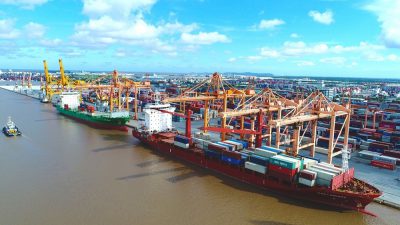
|
NDO – Deputy Prime Minister Trinh Dinh Dung had a working session on August 14 with the Ministry of Industry and Trade and relevant agencies regarding the National Power Development Plan VIII for the 2021-2030 period, with a vision to 2045 (hereinafter referred to as PDP 8). |
|
Speaking at the meeting, the deputy PM emphasised that despite changes in the structure of power sources and power sector development trends both at home and abroad, over the past few years, Vietnam’s power industry has made a concerted effort to ensure sufficient power for consumption, socio-economic development, defence and security. However, the process of implementing PDP 7 for the 2011-2020 period, with a vision to 2030, has revealed many shortcomings that need to be addressed. Many coal-fired thermal power projects are behind schedule, leading to the risk of power shortages, especially during 2020-2025. The official added that the power-use structure and demand have changed across economic sectors and regions, bringing about a need for reallocation and rearrangement. Meanwhile, clean energy has become an increasingly prevalent global trend, and Vietnam seizes huge potential for solar, wind and gas-fired power, but there remain obstacles in terms of legal and planning aspects. Deputy PM Dung emphasized the significance of PDP 8, hailing it as a key factor in attracting investment in electricity development and a tool to manage and ensure the future direction and development of the power industry. He requested that PDP 8 must be developed in a scientific and well-organised manner, must address the limitations of the current PDP 7, and should be open, creating a space to mobilize and promote resources from across society. On that basis, PDP 8 should put forward optimal plans, options and scenarios regarding total capacity in each period; deliver assessments and forecasts based on the trend of using clean energy and energy saving technologies; and determine the appropriate power structure to reduce system and infrastructure costs as well as ensuring environmental protection factors, the deputy PM held. The plan also needs to arrange a space for electricity development in regions, based on their potential and socio-economic development conditions, while embracing the development of a modern power transmission system that operates safely, reliably and effectively, he stated. Source: Nhan Dan Online |
